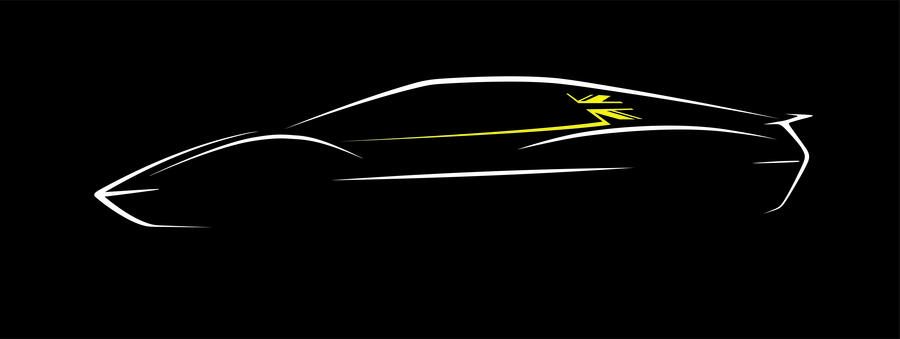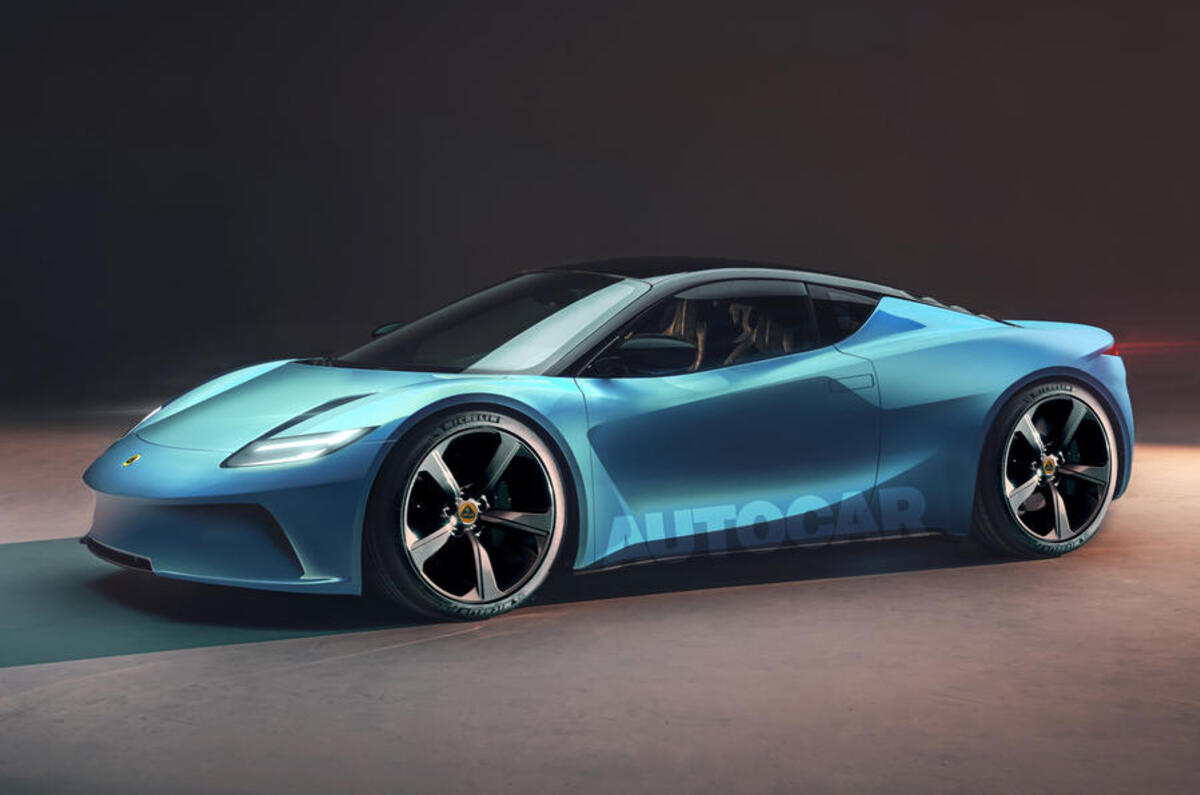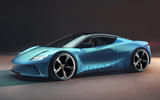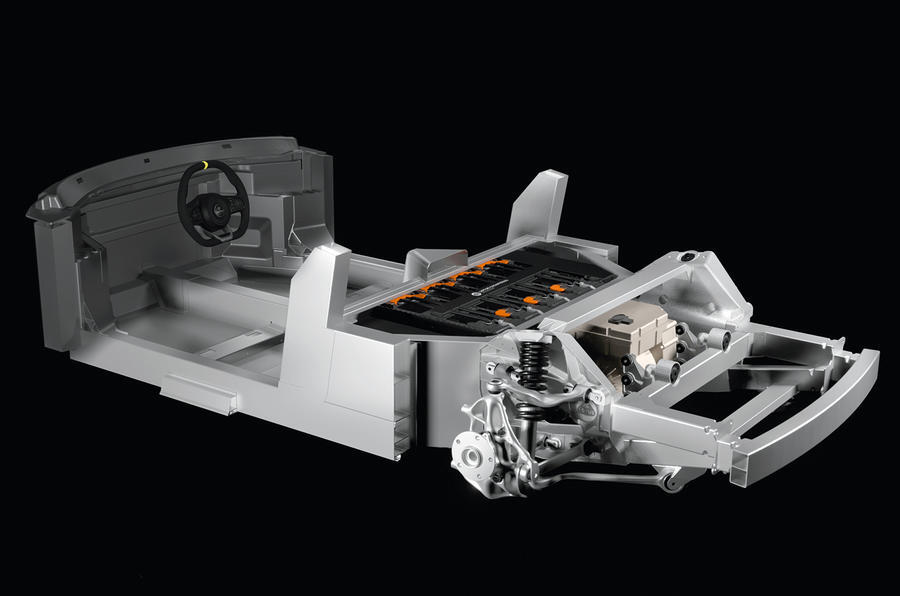Lotus will use batteries supplied by Britishvolt for a new electric sports car, which it has previewed in a design sketch.
The two firms have signed a memorandum of understanding to "collaborate on the research and development of advanced EV technology".
The main focus of the programme will be developing batteries for Lotus's upcoming family of electric sports cars – the first of which, likely to be the car previewed below, is the two-seat Type 135, due in 2026.
The new sketch suggests the model will take design influence from historic Lotus sports cars including the Esprit and Europa, with a low-slung, cab-forward silhouette, prominent front wings and pronounced rear haunches.

The new follows last week's announcement that Britishvolt had secured £1.7 billion in investment from new backers Tritax and Abrdn to fund the production of its battery factory in Blyth, Northumberland, which is set to be operational in 2024.
An earlier investment from the government's Automotive Transformation Fund is understood to have contributed another £100 million to the scheme.
Lotus is the first company to be named as a Britishvolt customer, and the battery maker has promised to name more in "a series of announcements" over the coming weeks.
It has previously referred to "relationships with blue-chip automotive sports car brands" but has given no further details.
Priorities for the Lotus sports EV in particular will be fast-charging capability, optimising energy density and keeping weight down – the latter of which will remain a hallmark of Lotus sports cars into the electric era.












Join the debate
Add your comment
A new venture on British soil is "crashed and burned" before it has begun. I despair of all the "haters" on here.
What is wrong with you people?
The Curse of Brexit strikes again!
If anything you'd have to thank the EU for insisting that the batteries are either made in the EU or in Britian to avoid the traiffs Brexiters wanted imposed on all British goods. It was them who were demanding "WTO rules". The EU did you a favour in that respect.
I suspect Lotus may get batterys from Mercedes in the short term if BV ones are not available on time, they are already supplying engines, and Geely own shares in Mercedes so that would probably make more sense.